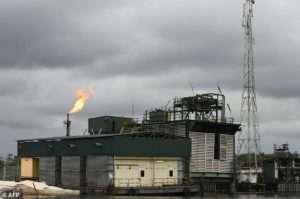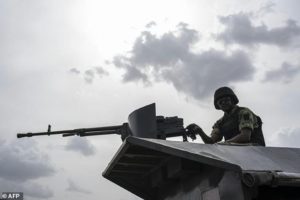The political make-up of Africa’s most populous nation is coming under scrutiny after a leading election hopeful promised greater devolution if he becomes president at polls next year.
Nigeria’s former vice-president Atiku Abubakar said this week he was in favour of handing more powers to the country’s 36 states and the Federal Capital Territory if he wins in February.
“Over the years, since (the) military got involved governing the country, they have created too many states and concentrated a lot of power in the centre,” he said.
“So, we believe we should return to the principles of true federalism: devolving more power and resources to the components of federalism in terms of security, healthcare, education.”
Such issues “will be best dealt with by people nearer to the people than the FG (federal government), which is too far away”, Abubakar, 71, told reporters in an interview.
In July, states and local governments received 656.6 billion naira ($1.8 billion, 1.6 billion euros) from a total of 821.9 billion naira in federal funding, according to official statistics.
The money shared out from the central account comes from revenue generated by the states themselves.
But more prosperous states — particularly those in the oil-producing south — have long complained they are subsidising less productive counterparts, especially those in the more impoverished north.
Abubakar’s call for a loosening of federal ties is significant because it stands at odds with the position of his fellow politicians from the north, including Buhari.
Until now, the idea has had more support in the south.
Nigeria as a single entity dates back to 1914 when British colonial rulers amalgamated northern and southern Nigeria for commercial purposes.
But there have been tensions ever since — and questions about whether the union can hold — because of ethnic, cultural and religious divisions.
Regional identity is fiercely guarded in Nigeria, which is almost evenly divided between a mainly Muslim north and the largely Christian south. The most obvious division has been between the north and south.
Abubakar, who was president Olusegun Obasanjo’s deputy from 1999 to 2007, described Nigeria as “a number of countries in one country”.
Critics of the current political set-up, such as the Restructure Nigeria group, have called the current system of allocations “unfair, ridiculous and bizarre” and suggested it provides no incentives and breeds corruption.

Militancy in the oil-producing south has largely been fuelled by demands for greater control of the revenue generated by oil and gas
Ending “unitary ‘feeding bottle’ federalism” and giving states more control of areas from natural resources to policing would kickstart moribund local economies and improve security, they argue.
Militancy in the oil-producing south has largely been fuelled by demands for greater control of the revenue generated by oil and gas.
Repeated lack of central funding for infrastructure has equally contributed to the revival of separatist sentiment in the southeast.
But Buhari’s administration has maintained that good governance and better execution of infrastructure projects is more important than restructuring.
Vice-President Yemi Osinbajo said last month: “It is about managing resources properly and providing for the people properly, that is what it is all about.”
He recalled his time as a commissioner in Nigeria’s commercial capital, Lagos, between 1999 and 2007 and how he fought for financial autonomy for the state.
“We felt that there was a need for the states to be stronger, for states, to more or less, determine their fortunes.”
Osinbajo on Tuesday said Abubakar lacked proper understanding of restructuring, calling his plan “vague” and ill thought-out.
Abubakar, who wants to secure the ticket for the opposition Peoples Democratic Party, admitted that his position would not be popular in his native northeast Nigeria.
But it could be a canny political move to win support in the south, which traditionally has not been inclined to back northern Muslim candidates.
The ethnic Yoruba socio-cultural group Afenifere in the southwest has led calls for greater devolution. The region includes megacity Lagos – a key election battleground and must-win prize for any presidential hopeful.
“When people talk about good governance and promise good roads, agricultural development and all that, we just laugh,” Afenifere leader, Ayo Adebanjo, said last weekend.

Nigeria faces numerous security challenges ranging from jihadist attacks to a separatist movement in the southeast
There must be a country first before any development.”
Nigeria is riven with security challenges from Boko Haram Islamists in the northeast to Biafran separatists in the southeast and violence between farmers and herders in central states.
Peace and stability would be elusive without restructuring, he added.





